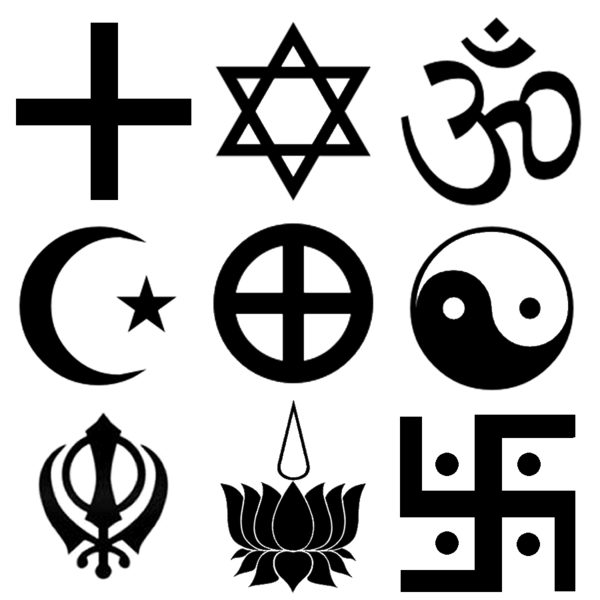The identity of Palestinians is intrinsically woven into the vibrant fabric of both Islam and Christianity, embodying a rich cultural heritage that is profoundly influenced by centuries of history. How does one unravel the complex tapestry of religious affiliation within such a unique cultural context? The exploration of religious identity among Palestinians invites a playful yet profound inquiry: Can one be a Palestinian without acknowledging the deep-seated ties to either religious tradition? This question reveals a significant challenge, as it underscores the interplay between faith, land, and identity in a region fraught with historical tensions.
Historically, the land known today as Palestine has served as a crucible for both Islamic and Christian traditions. The advent of Islam in the 7th century significantly altered the religious landscape, leading to the majority of Palestinians identifying as Sunni Muslims. This identification is not merely a matter of belief; it is also a testament to cultural practices, familial structures, and societal norms that interlace with Islamic teachings. The call to prayer, the observance of Ramadan, and the celebration of Eid are not only religious practices but also cultural rites that bind the community together in shared experiences.
However, it is crucial to recognize that Christianity has deep roots in this region as well. Palestinian Christians, who represent a minority—approximately 1% of the population—are descendants of the early followers of Jesus Christ. The story of Christianity in Palestine is one of resilience and adaptation. From the ancient churches that dot the landscape to the vibrant celebrations of Christmas and Easter, the presence of Christianity is palpable. It continues to shape the identity of Palestinian Christians who navigate their dual identities with a profound sense of pride amidst the broader socio-political challenges they face.
The notion of cultural identity plays a vital role in understanding what it means to be a Palestinian in a religious context. For many, their Palestinian identity is inseparable from their faith. It raises the question: How do religious practices influence national identity? The annual commemoration of events, such as the Nakba, is often intertwined with collective religious observances. This melding of faith and nationalism can be observed during interfaith events where both Muslims and Christians come together to reflect on shared experiences, emphasizing the commonalities that transcend individual beliefs.
Yet, the challenge lies in the current political climate, which exacerbates divisions between Muslims and Christians, often fostering a sense of insecurity within both communities. As the Israeli-Palestinian conflict endures, the question arises: How can these religious groups maintain their cultural identities while advocating for coexistence? The struggle against external pressures can sometimes lead to a reinforcement of internal divisions, where the differentiation between Muslim and Christian identities becomes pronounced. This scenario prompts a crucial discussion about the importance of recognizing not just the differences, but also the shared values that exist among these communities.
One significant dimension of Palestinian Christian identity is its connection to the heritage of the land. The sites of religious significance—such as Bethlehem, Nazareth, and Jerusalem—are emblematic of a rich historical narrative that encompasses both Christian and Islamic traditions. These places are not just landmarks; they are imbued with a spiritual resonance that both Muslims and Christians cherish. The shared reverence for sacred spaces can serve as a foundation for dialogue and mutual respect.
The interplay between faith and identity is further exemplified in the role of religious institutions during times of crisis. Churches and mosques have historically acted as sanctuaries, providing community support and advocating for peace. Initiatives aimed at fostering interfaith dialogue illustrate the potential for understanding and unity, as leaders from both communities come together to address pressing social issues while emphasizing their common Palestinian heritage.
Nevertheless, it is essential to acknowledge the challenges that lie ahead. The narrative surrounding Palestinian identity often oversimplifies the complexity of individual beliefs. Palestinians are not monolithic; their experiences and interpretations of faith vary widely, influenced by personal, familial, and regional factors. This complexity necessitates a nuanced understanding of identity, where embracing diversity within both religious affiliations is crucial for fostering a more inclusive community.
The discourse on what it means to be a Palestinian in a religious context invites further reflection. Can mutual understanding be cultivated amidst the diversity of beliefs? It is an open-ended question that seeks to bridge the gaps created by political turbulence and societal pressures. The journey towards recognizing the richness of collective identity does not come without its hurdles, but it can ultimately lead to a more peaceful coexistence.
Ultimately, in navigating the intricate relationship between religion and Palestinian identity, one must consider the virtues of empathy, understanding, and appreciation of the shared human experience. The tapestry of Palestinian life encompasses a spectrum of beliefs, each contributing to the national identity in its own unique way. It is a powerful reminder of the common threads that interweave diverse narratives and the potential for unity among those who call this land home.



